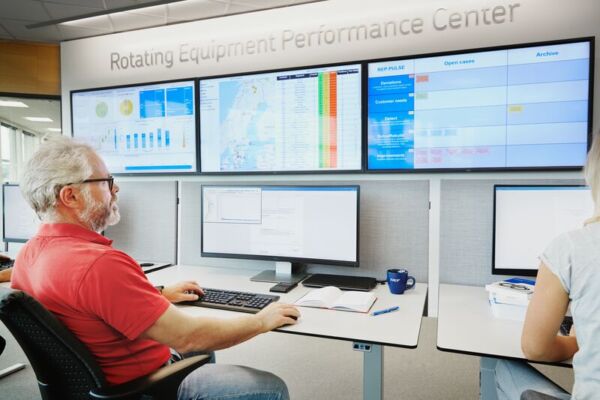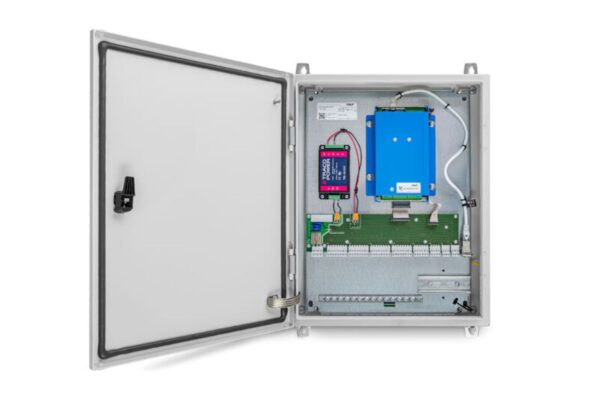Savvy supervision
Traditional maintenance protocols involve routine checks at regular intervals. While effective to a degree, this approach has its drawbacks — issues that arise between checks can go unnoticed until the next scheduled inspection, sometimes leading to more complex problems. And if a component fails, the ensuing reactive maintenance requires significant manpower and materials.
In contrast, predictive maintenance employs sophisticated sensors, data analytics, and algorithms to monitor the health of each turbine and spot issues early on. The early identification of components that need repairs or replacements allows for proactive, condition-based maintenance, preventing issues from escalating and enabling better allocation of resources. Instead of sending crews to inspect turbines that are operating optimally, they can be dispatched to check turbines that the predictive algorithms flag as potentially problematic. This way equipment lifespan can be extended, and overall productivity improved.
Savings
The foresight provided by predictive maintenance can translate to considerable cost reductions. Unexpected turbine failures carry a hefty price tag, not only in repair costs but also in the form of revenue losses due to downtime. Predictive maintenance enables the preemptive identification of potential failures, allowing components to be replaced during planned maintenance activities. This is often more economical compared to last-minute service calls, which tend to be expensive.
Improved safety and compliance
The proactive nature of predictive maintenance lessens safety risks tied to sudden equipment failures. This is crucial in massive structures like wind turbines, where malfunctions can pose serious threats to maintenance crews and the surrounding area. Predictive maintenance can flag potential issues before they escalate, thereby reducing the risk of catastrophic failures that could result in accidents and injuries. Additionally, it facilitates compliance with safety and other regulatory requirements through accurate and real-time reporting, minimizing legal liabilities. This not only satisfies regulatory bodies but also instills confidence among stakeholders and investors.
Environmental benefits and competitive advantage
By ensuring that turbines are operating at peak efficiency, predictive maintenance also helps in maximizing the energy output from each gust of wind. This means that over their operational life, turbines can generate more clean energy, further contributing to environmental sustainability. Moreover, leveraging the advantages of predictive maintenance can provide a significant competitive edge, positioning companies as forward-thinking and environmentally responsible players in the sector.
Catch the digital breeze!
The adoption of predictive maintenance within the wind energy sector reflects a broader trend across the energy and various industrial sectors to leverage digital technologies for enhanced operational efficiency. Considering all the benefits, isn’t it time to evaluate how predictive maintenance can elevate your operations?



